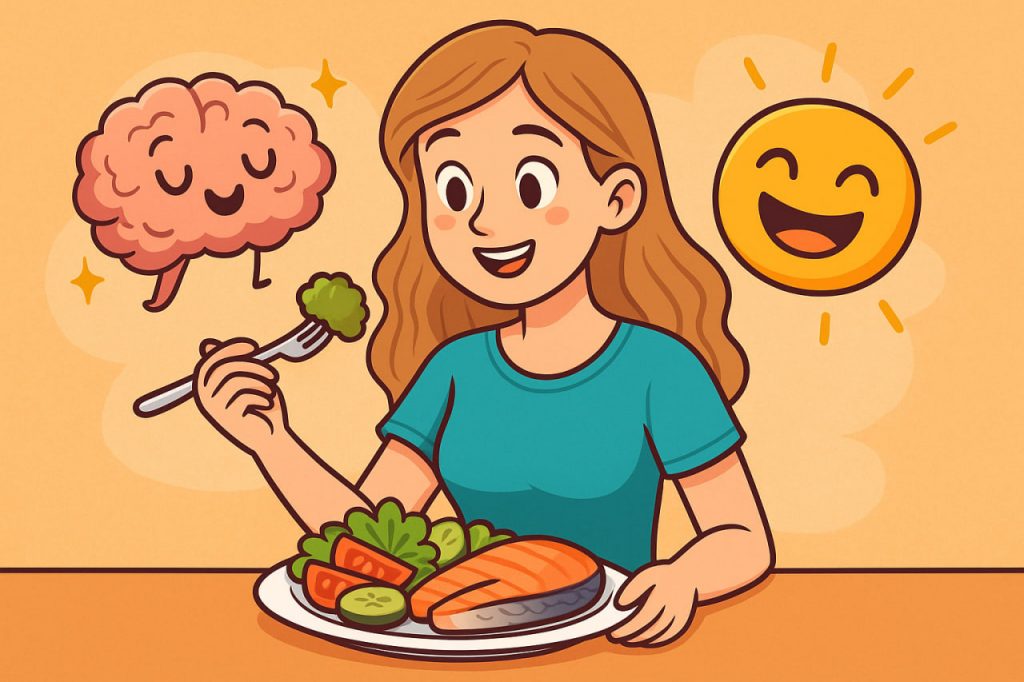The food we eat influences not only physical health but also emotional well-being. Scientists have discovered strong links between diet and mood through the way nutrients affect brain chemistry, hormones, and energy levels. A balanced diet can improve mood stability, reduce anxiety, and even lower the risk of depression, while poor eating habits can do the opposite.
The Brain–Gut Connection
The gut and brain are closely linked through the gut-brain axis. Trillions of gut bacteria produce chemicals, such as serotonin and dopamine, that directly influence mood. A diet rich in fiber, fruits, vegetables, and probiotics supports healthy gut flora, which in turn helps regulate emotions and reduce stress.
Role of Specific Nutrients
- Carbohydrates – boost serotonin levels, improving calmness and happiness, especially when coming from whole grains and fruits.
- Proteins – contain amino acids like tryptophan, which are building blocks for mood-regulating neurotransmitters.
- Omega-3 fatty acids – found in fish, nuts, and seeds, support brain health and reduce symptoms of depression.
- Vitamins and minerals – B vitamins, magnesium, zinc, and iron are essential for stable energy and emotional balance.
Impact of Unhealthy Foods
High consumption of processed foods, sugar, and unhealthy fats can lead to mood swings, irritability, and fatigue. Sugary snacks cause quick energy spikes followed by crashes, which affect concentration and mood. Over time, such diets are linked to higher risks of depression and anxiety.
Hydration and Mood
Even mild dehydration can lead to irritability, headaches, and difficulty focusing. Drinking enough water throughout the day is essential for maintaining mental clarity and a positive mood.
Comfort Foods and Emotional Eating
Many people turn to food for comfort during stress. While eating sweets or fast food may temporarily boost mood, this effect is short-lived and often followed by guilt or energy crashes. Developing healthier coping mechanisms, such as exercise or meditation, provides longer-lasting mood regulation.
Long-Term Benefits of Healthy Eating
Regular consumption of nutrient-rich foods stabilizes energy, improves sleep quality, and enhances resilience to stress. Over time, a healthy diet helps lower the risk of depression and anxiety, supporting both mental and physical health.
Conclusion
Food has a powerful impact on mood through the gut-brain connection, neurotransmitter production, and nutrient supply. Healthy eating supports emotional stability, while poor diets increase mood problems. By choosing balanced meals, staying hydrated, and avoiding excess sugar and processed foods, we can nourish both the body and the mind.
Glossary
- Gut-brain axis – the communication system between the digestive system and the brain.
- Serotonin – a neurotransmitter that regulates mood and happiness.
- Neurotransmitters – chemicals that transmit signals in the brain.
- Omega-3 fatty acids – healthy fats that support brain and heart function.
- Emotional eating – using food to cope with stress or emotions.


